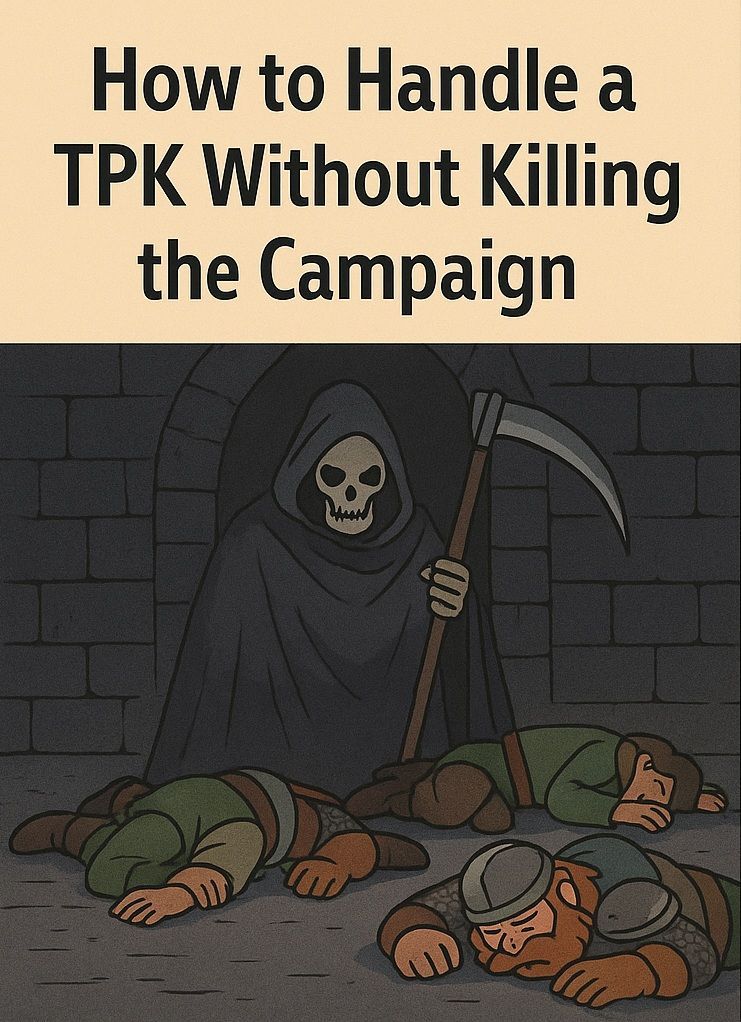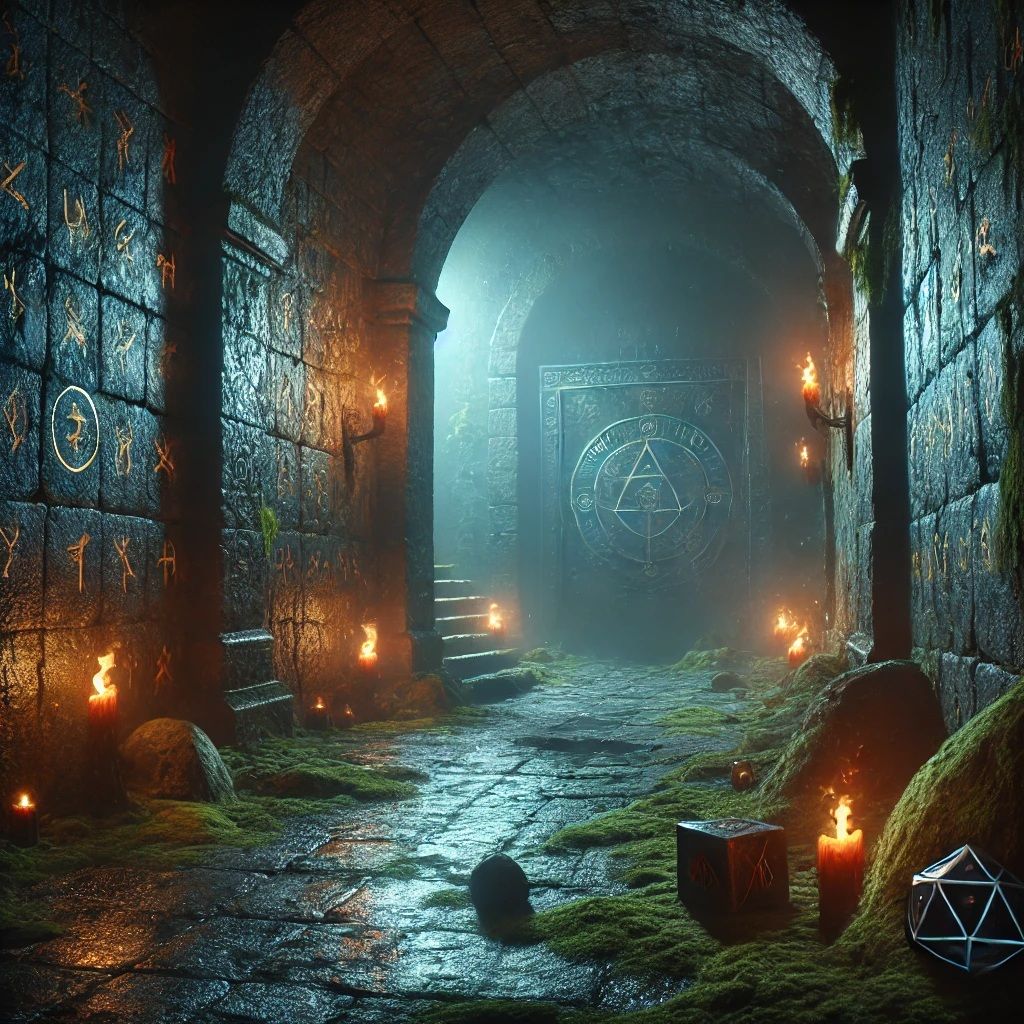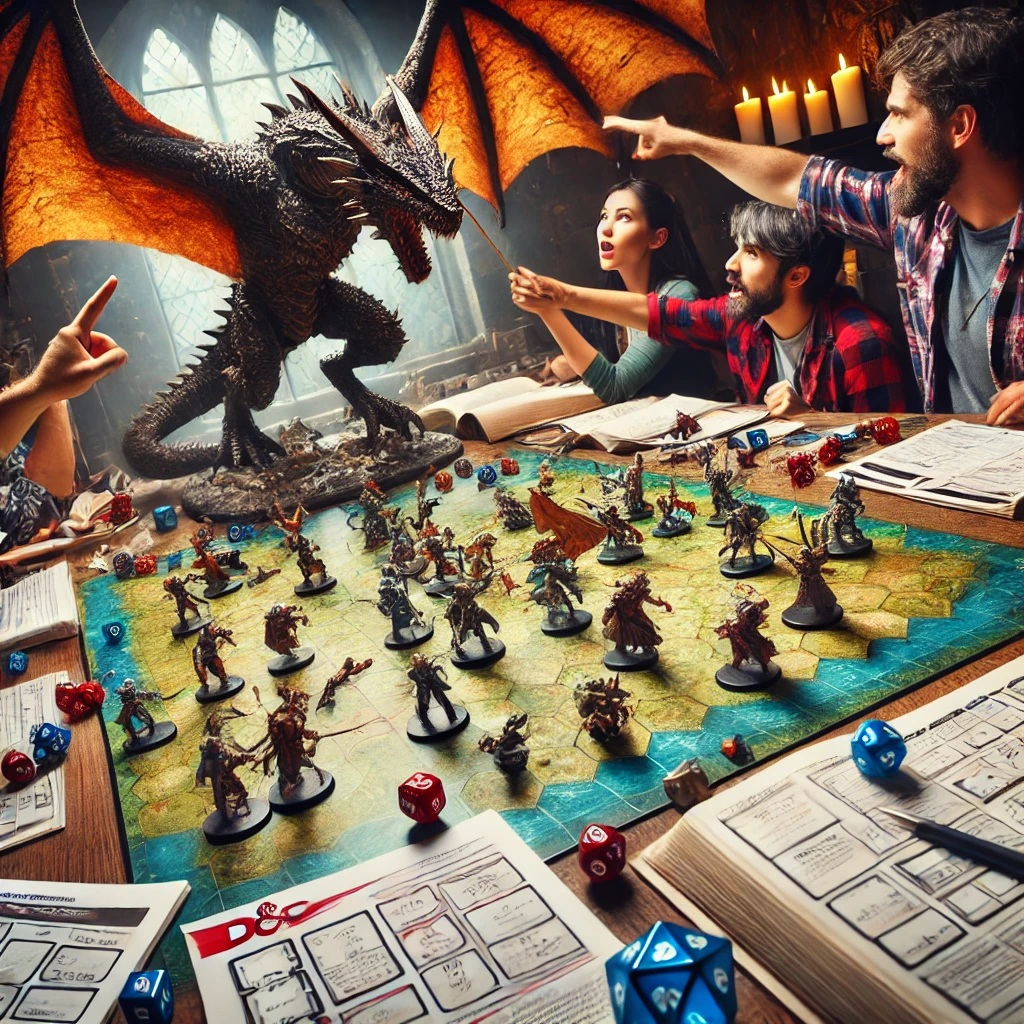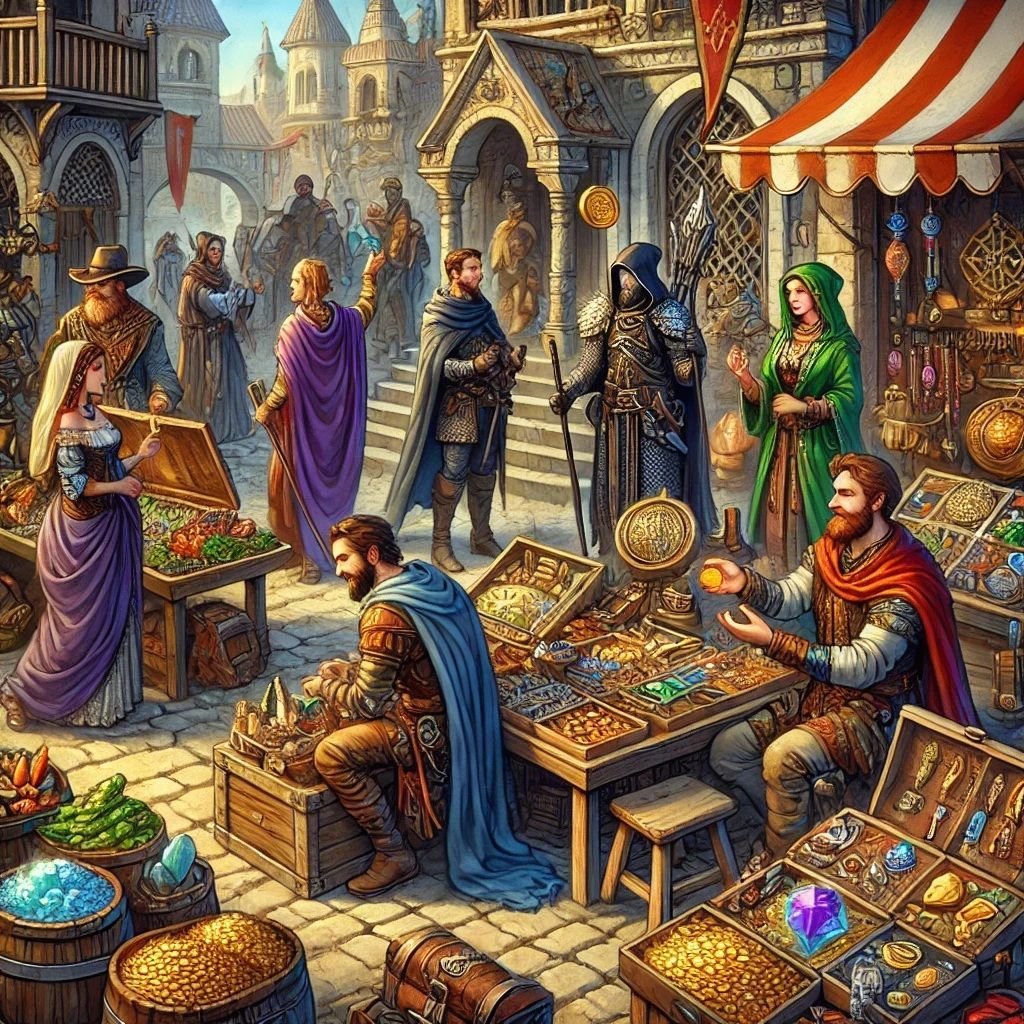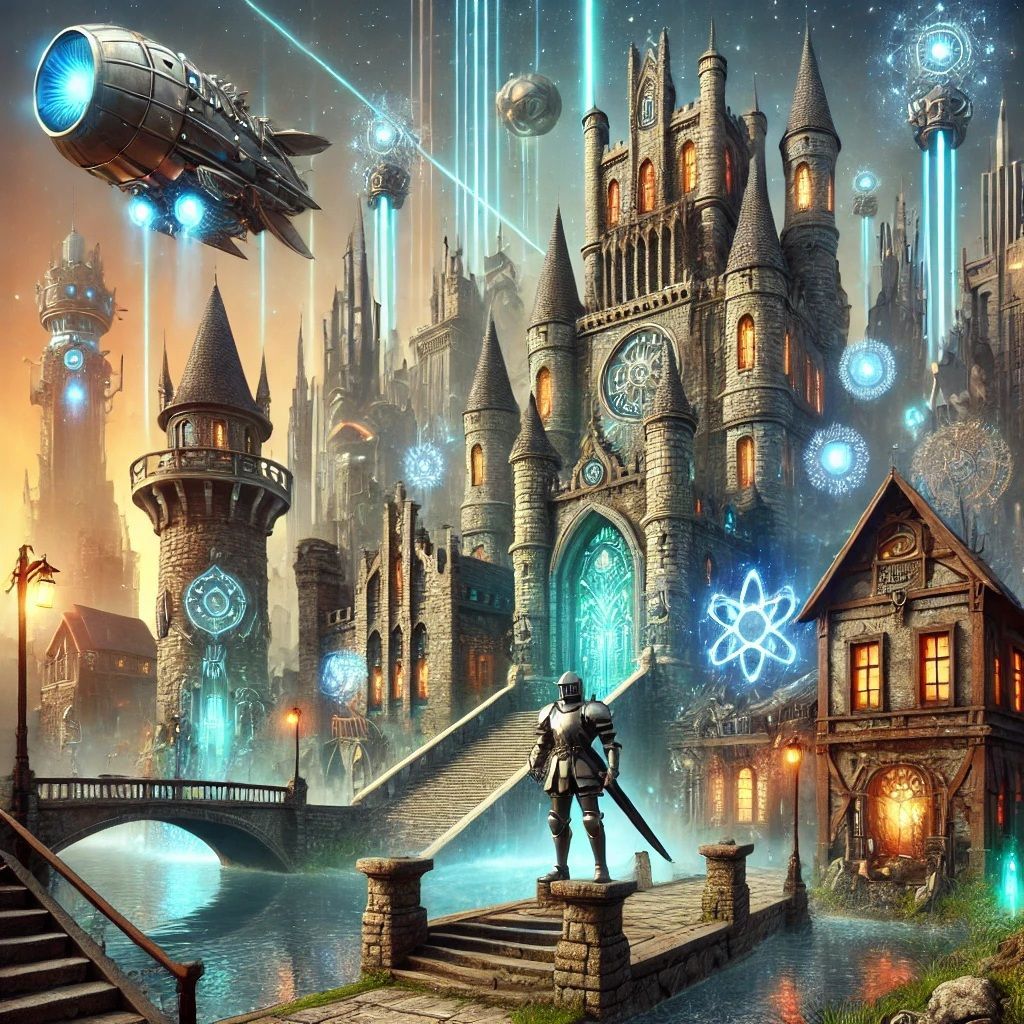The Economics of Adventure: Exploring Trade, Wealth, and Resource Management in TTRPGs
TTRPG Economics 101: how that treasure horde can cause problems...
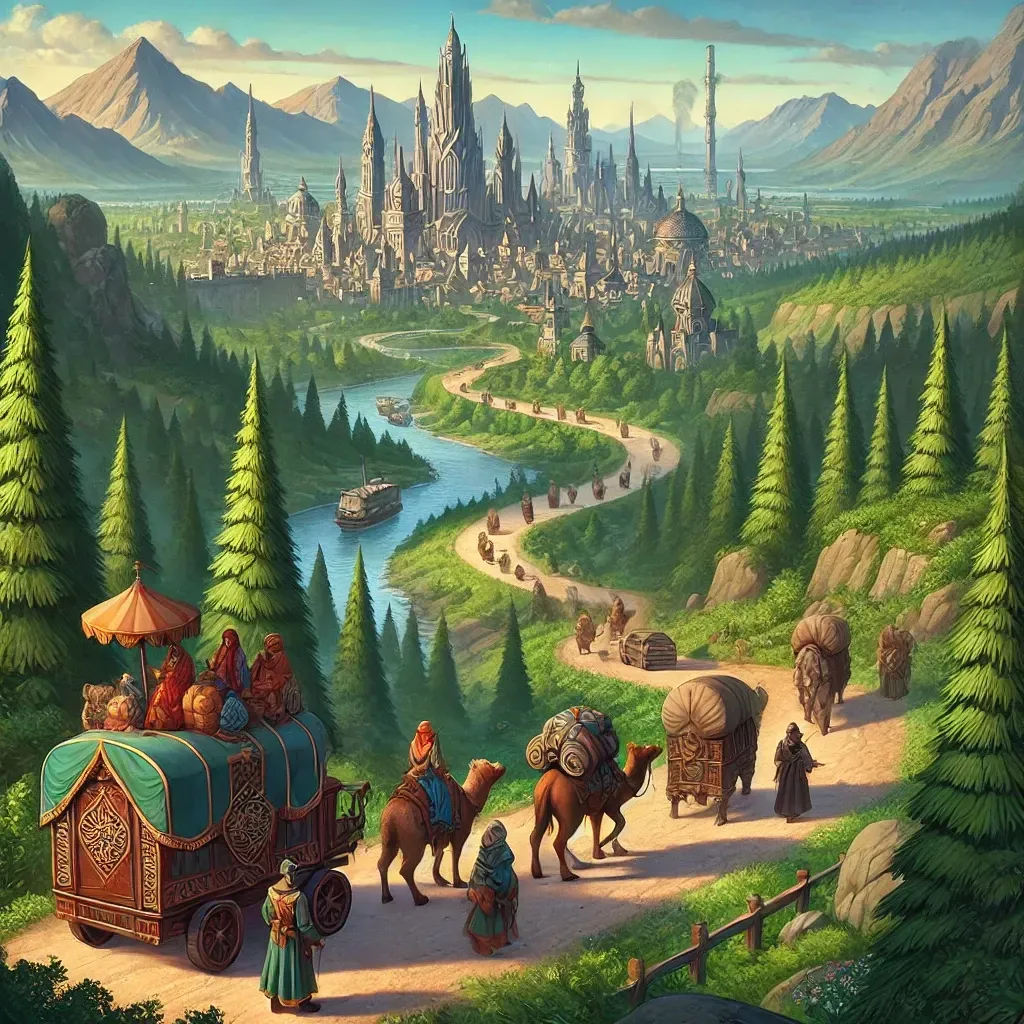
Dear Readers,
Have you ever wondered what happens to all that gold your party hauls out of the dragon’s lair? Or how the townsfolk you protect make a living while your adventurers gallivant across the countryside? Welcome to the fascinating world of economics in tabletop role-playing games (TTRPGs), where coin, barter, and resource management can play as much of a role as swords and spells.
Economics in TTRPGs is often an overlooked but deeply enriching layer of storytelling and world-building. Whether you're a Dungeon Master (DM) looking to add depth to your campaign or a player trying to squeeze every copper piece out of a merchant, understanding the dynamics of in-game economics can lead to more engaging and immersive gameplay.
In this blog post, we’ll explore how economics can be integrated into TTRPGs, dissect the role of wealth in adventuring, discuss the balance between realism and fun, and provide practical tips for implementing economic systems in your games. Let’s dive in!
The Role of Economics in TTRPGs
At its core, economics in TTRPGs serves several key purposes:
Immersion: A vibrant economy helps the game world feel alive. Towns with bustling marketplaces, kingdoms with trade routes, and guilds with mercantile agendas create a setting that feels rich and interconnected.
Narrative Hooks: Economic systems can generate compelling storylines. A town struggling under an oppressive tax, a guild vying for monopoly over a rare resource, or a noble house falling into debt can all provide the backbone for your campaign.
Player Motivation: Gold and treasure are classic motivators in TTRPGs. However, beyond hoarding wealth, economic considerations can push players to think about their character’s goals—do they want to fund a castle, pay for arcane research, or establish a trading empire?
Gameplay Balance: Economics can act as a balancing mechanic. By requiring players to manage resources like gold, rations, and equipment, you create opportunities for strategic thinking and collaboration.
Economic Archetypes in TTRPGs
Every game has its unique approach to economics, from the freewheeling treasure hunts of Dungeons & Dragons to the grimy street-level scrounging in Cyberpunk Red. Below are some common archetypes and how they shape gameplay:
1. The Treasure Trove Economy
Example: D&D 5e
In high-fantasy games like D&D, wealth often feels abstract. Adventurers acquire vast amounts of gold from dungeons and monsters, only to spend it on magical gear, inns, and the occasional bribe.
Challenges: Over time, players can accumulate more wealth than they can reasonably spend. This leads to “gold bloat,” where treasure becomes meaningless.
Opportunities: Introduce high-cost goals, such as land ownership, custom magical items, or funding an army, to keep gold relevant.
2. Survival Economies
Example: Pathfinder, Blades in the Dark
Survival-focused games often treat wealth and resources as finite and fragile. Food, ammunition, and medical supplies become precious, making every copper feel valuable.
Challenges: The scarcity can frustrate players who prefer heroic fantasy over gritty realism.
Opportunities: Use scarcity to fuel tension and drama. A hungry party forced to barter with bandits or sacrifice equipment for supplies makes for memorable gameplay.
3. Merchant Guild Simulations
Example: Traveller, Eberron Campaign Setting
Some games take economics to a strategic level, allowing players to engage in trade, build businesses, or manipulate markets.
Challenges: This level of complexity can alienate players not interested in logistics.
Opportunities: Balance spreadsheets with adventure. Let the merchant baron fend off raiders or the trade captain uncover a smuggling conspiracy.
Building a Realistic Fantasy Economy
Creating a believable economy in your TTRPG campaign requires balancing realism with accessibility. Here are some tips to get you started:
1. Set the Foundations
Currency Systems: Decide whether your world uses coinage, barter, or both. A single kingdom may have gold and silver pieces, while nomadic tribes rely on trade.
Supply and Demand: Anchor your economy in the natural resources of your setting. Does your desert town export rare spices? Does your mountain kingdom mine precious gems?
Technology and Infrastructure: The level of technological advancement in your world affects trade and industry. Steam engines and airships lead to different economic patterns than carts and caravans.
2. Introduce Factions and Power Players
Merchant guilds, trade caravans, pirate fleets, and nobles all vie for economic power. These factions can serve as allies, rivals, or employers for the party.
Example: A guild might hire the party to secure rare materials for a burgeoning industry—or sabotage a rival’s shipments.
3. Account for Social Classes
Class disparity adds depth. Rich nobles might flaunt their wealth with lavish feasts, while peasants scrounge to survive. Characters who navigate both worlds open doors to diverse roleplay opportunities.
Balancing Economics with Fun
TTRPGs are, at their heart, games. While detailed economic systems can enhance immersion, they shouldn’t bog down gameplay. Here’s how to strike the right balance:
1. Abstract Wealth When Necessary
For fast-paced games, consider simplifying wealth into tiers or "lifestyle costs." Instead of tracking every copper, players can pay a weekly cost based on their chosen lifestyle (e.g., “modest,” “wealthy,” “aristocratic”).
2. Avoid Analysis Paralysis
Don’t let players get lost in calculations. If your group is spending hours haggling over 2% profit margins on imported silks, it might be time to move on.
3. Focus on Storytelling
Make economics a means to tell stories, not an end in itself. An auction for a rare artifact can double as a social encounter. A city’s failing economy might serve as a backdrop for political intrigue.
Integrating Economics into Gameplay
How can you weave economic elements into your game without overwhelming your players? Here are practical ideas for different types of campaigns:
For Dungeon Crawls
Loot with Purpose: Instead of generic gold piles, make treasure unique and connected to the world. A dragon’s hoard might include rare coins from an ancient empire or a deed to a forgotten castle.
Encumbered by Wealth: Large sums of treasure could attract thieves, taxes, or even monsters. A party carrying too much gold is a walking target.
For Urban Adventures
Dynamic Marketplaces: Create vibrant markets with fluctuating prices, rare goods, and colorful NPC merchants.
Black Markets and Smugglers: Let players explore the shadowy side of the economy, whether by selling illicit goods or uncovering contraband operations.
For Kingdom-Building Campaigns
Economic Policies: Let players make decisions about trade tariffs, taxation, and alliances. These choices can ripple through the campaign, creating opportunities and conflicts.
Trade Routes: Establish trade routes as strategic resources. Securing a caravan path might be just as important as defeating a rival warlord.
For Sci-Fi Campaigns
Corporate Monopolies: Spacefaring adventures can revolve around megacorporations controlling resources like fuel or rare minerals.
Galactic Trade: Introduce interstellar trade as a mechanic, with supply chains spanning planets and rival factions vying for dominance.
Economic Plot Hooks for Your Campaign
Struggling to incorporate economics into your game? Use these plot hooks for inspiration:
The Counterfeit Craze: A flood of counterfeit coins has destabilized the local economy. Who’s behind it, and why?
Supply Chain Sabotage: Bandits are targeting vital trade routes. Can the party uncover their true motives and protect the merchants?
Market Monopoly: A ruthless merchant guild is driving competitors out of business, even resorting to assassinations. Will the party take them down or join their ranks?
Taxation and Tyranny: A corrupt noble has raised taxes to unbearable levels. The party must decide whether to expose their crimes or lead a rebellion.
Magical Economy: A rare magical resource (like dragon scales or enchanted crystals) has become the lifeblood of the kingdom. What happens when the supply runs dry?
Advanced Economics: Player-Driven Markets
For groups that love complexity, consider adding systems that allow players to manipulate or even control markets. Here are some ideas:
Trading Systems
Introduce supply-and-demand mechanics where players can buy low and sell high. For example, transporting grain from a farming village to a famine-stricken city could yield significant profits.
Crafting Economies
Encourage players to invest in crafting professions. They can forge weapons, brew potions, or enchant items to sell for profit or use in-game.
Establishing Businesses
Let players own and operate businesses, such as taverns, blacksmiths, or shipping companies. These can generate passive income but also create potential risks (e.g., robberies, inspections, or competition).
Economic Tools for DMs
Running an economy-focused game can be daunting, but tools and resources can simplify the process:
Random Price Generators: Online tools can help you quickly generate fluctuating market prices for goods.
Lifestyle Expenses Tables: Many TTRPG rulebooks include lifestyle expense charts. Use these to abstract wealth management.
NPC Generators: Populate your markets with colorful, memorable NPCs to make trading and haggling fun.
Final Thoughts
Economics in TTRPGs is more than just gold and gear—it’s a lens through which we can explore our worlds and characters in new and exciting ways. From gritty survival to high-stakes trade wars, integrating economic systems can bring your game to life in unexpected ways. Whether you’re bartering with kobolds or building a merchant empire, the possibilities are endless.
So, the next time your party rolls into a bustling port city or uncovers a forgotten treasure, take a moment to think about the economic ripple effects of their actions. After all, even heroes need to balance the books sometimes.
Until next time, Dear Readers…















